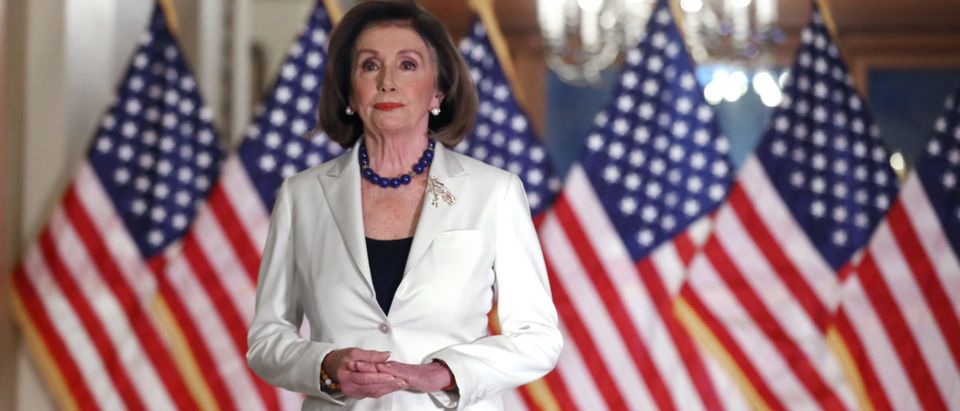Simon & Garfunkel have some “feelin’ groovy” advice that the Congress might follow to improve its dismal approval ratings with the American people: “slow down, you move too fast …”
President Biden was correct when he said at his press conference after returning from Europe that the American people felt unsettled. Americans worry today about COVID-19, inflation (higher energy, food, and housing costs), supply-chain bottlenecks, new and used car shortages, an open southern border and the bungled Afghanistan withdrawal.
Biden’s answer has been for the Congress to pass promptly his two infrastructure packages. Then, everything will return to normal.
In the background, can’t you still hear Barack Obama’s (and Joe Biden’s) health care reform promises: “if you like your doctor, you can keep your doctor?” And, that health insurance costs will decline?
Bottom line: don’t ever trust federal out-year budget and cost projections. Both political parties play fast and loose with the numbers.
The president’s answer, however, is hardly comforting when you consider how this Democrat-run Congress has been behaving during the Biden presidency. As of October 2021, a mere 21% of Americans approve of how Congress operates.
Until it passed Biden’s proposed $1.1 trillion “hard” infrastructure bill in early November, Congress’s other major accomplishment this year was passing a $1.9 trillion COVID relief package as a follow-on to Donald Trump’s $900 billion 2020 COVID relief package.
Not all of this money has been spent, or spent well, for that matter. (I know of one college senior who had no student debt and was actually earning money as a resident adviser. She received $5,000 in COVID-relief money. Doubtless there are other similar situations.)
After trillions of dollars have been pumped into our economy in under two years, we now know that significant inflation, once deemed temporary, is surging for the first time in roughly three decades. Another $2 trillion-plus in proposed federal spending for Biden’s “Build Back Better” plan is likely to worsen future inflation.
We’re cautioned to avoid watching how sausages are made and how Congress legislates, but this year, the legislative spectacle has been astonishing, largely due to significant divisions among Congressional Democrats torn between a moderate majority and a vocal, often intransigent, progressive minority that doesn’t appreciate compromise.
There’s still no budget for Fiscal Year 2022 (which began on October 1). The debt-ceiling increase passed earlier must be visited again by December 15. With a rapidly dwindling number of legislative days left before the Christmas recess, the Democrat-controlled Congress also plans to pass Biden’s “Build Back Better” bill, the estimated cost of which (by the administration) is now somewhere between $1.75 and $2.4 trillion – and no doubt well above those estimates according to other, nonpartisan reviewers.
As moderate Congresswoman Abigail Spanberger (D-VA) recently commented, Americans did not elect Joe Biden to be another FDR. Americans wanted a return to normalcy after Trump’s turbulent presidency; they wanted calm, with less noise and disruption emanating from Washington. Such normalcy also applies to Congress.
For reasons still unknown, the supposedly moderate, centrist Sen. Biden, once elected, morphed into progressive President Biden. Biden did avow during his 2020 campaign that he’d be a progressive, and he collaborated with democratic-socialist Sen. Bernie Sanders of Vermont in developing a domestic-policy agenda that constituted a progressive wish-list.
Biden’s 2020 victory over Donald Trump, however, did not carry a policy mandate to pursue Bernie Sanders’s progressive policy menu. This fact is underscored by the GOP’s 13-seat House pickup and an evenly divided Senate. Biden’s “mandate” was: “don’t be Trump.”
October’s Consumer Price Index reported annualized inflation of 6.2 percent, the largest increase since December 1990. Even before the Labor Department released this information, moderate Sen. Joe Manchin (D-WVA) urged caution: let’s hold off passing the massive “soft” infrastructure legislation until there’s a better grasp of the economic impact of all of this stimulus money on the federal deficit, the national debt, and rapidly escalating inflationary pressures.
Democrats continue to ignore the regular congressional process of committee hearings and careful, non-rushed budgetary scoring by the Congressional Budget Office. They should conduct significant public outreach to explain to Americans what’s in the “Build Back Better” legislation and how it will benefit them and their families.
Several Congressional Democrats have acknowledged publicly that they made a mistake by focusing their legislative package on its cost rather than its contents.
In 2020, Americans wanted a breather after Trump’s presidency. Congress needs to slow down, especially when polls show that Americans today are far from “feelin’ groovy.”
Charles Kolb served as Deputy Assistant to the President for Domestic Policy from 1990-1992 in the George H.W. Bush White House


